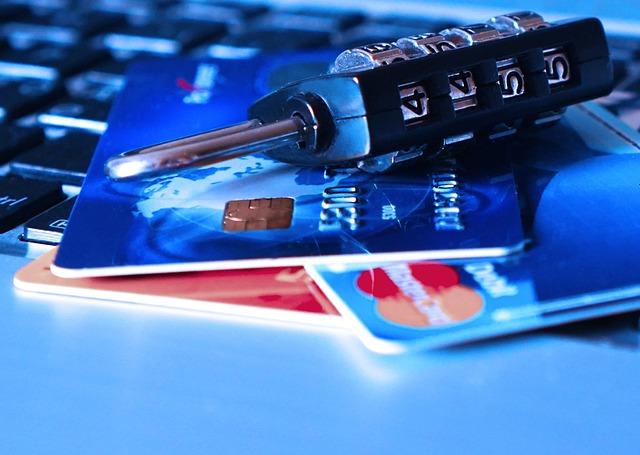In a world where our lives are increasingly intertwined with technology, safeguarding one’s identity has become as essential as locking the front door. For seniors, who have witnessed the evolution from rotary phones to smartphones, this digital age presents both incredible opportunities and unique challenges. As we navigate these modern waters, the specter of identity theft looms larger than ever, threatening to turn our golden years into a source of anxiety. This article is your compassionate guide, offering practical steps to shield your identity from those who would seek to exploit it. With empathy and understanding, we delve into the nuances of staying safe in the digital age, ensuring that you can embrace the conveniences of technology with peace of mind and a secure sense of self.
Guarding Your Golden Years: Essential Tips for Seniors to Prevent Identity Theft
As we embrace the golden years, staying vigilant about protecting personal information becomes crucial. Here are some actionable tips that can help safeguard your identity:
- Shred Sensitive Documents: Always shred any documents that contain personal information before discarding them. This includes old bank statements, bills, and even junk mail that might contain your name and address.
- Monitor Your Accounts: Regularly check your bank and credit card statements for any unauthorized transactions. Many banks offer alerts for suspicious activities, so consider enabling these notifications.
- Use Strong Passwords: Create complex passwords for online accounts and change them regularly. Avoid using easily guessed information like birthdays or pet names. Consider using a password manager to keep track of them securely.
- Beware of Phishing Scams: Be cautious of unsolicited emails or phone calls asking for personal information. Legitimate organizations will never ask for sensitive details through these channels.
- Secure Your Devices: Ensure that your computer and mobile devices have up-to-date antivirus software. Set up a strong password or biometric lock for your devices to prevent unauthorized access.
By implementing these simple yet effective strategies, you can significantly reduce the risk of identity theft and enjoy peace of mind in your well-deserved retirement years.

Digital Defenses: Navigating Technology Safely as a Senior
In the digital age, safeguarding your personal information is more crucial than ever, especially for seniors who may be targeted more frequently by cybercriminals. Here are some essential tips to help you protect yourself from identity theft:
- Strengthen Your Passwords: Use a mix of uppercase and lowercase letters, numbers, and symbols to create strong, unique passwords for each account. Consider using a password manager to keep track of them securely.
- Be Cautious with Emails and Links: Avoid clicking on suspicious links or downloading attachments from unknown sources. Cybercriminals often use emails to trick you into revealing personal information.
- Monitor Your Financial Statements: Regularly check your bank and credit card statements for any unauthorized transactions. Report any discrepancies immediately to your financial institution.
Remember, being proactive and informed is your best defense against identity theft. By adopting these practices, you can navigate the digital world with greater confidence and peace of mind.

Recognizing Red Flags: Spotting Common Scams Targeting Older Adults
As we age, we become more cherished targets for scammers who use cunning tactics to exploit our trust and good nature. Understanding the red flags of common scams can be your first line of defense. Be wary of unsolicited phone calls or emails requesting personal information. Scammers often pose as trusted entities such as banks or government agencies. Always verify the identity of the caller by reaching out to the organization directly using official contact information.
- Phishing Emails: These emails often appear legitimate and urgent, urging you to click on links or download attachments. Look out for spelling errors and generic greetings.
- Tech Support Scams: Fraudsters may claim your computer has a virus and offer to fix it remotely. Remember, legitimate companies never ask for remote access unless you initiated the contact.
- Grandparent Scams: This emotional ploy involves a caller pretending to be a grandchild in distress. Always verify the story by contacting family members directly.
By staying informed and vigilant, you can protect your identity and peace of mind. Remember, it’s okay to hang up or delete messages that seem suspicious.
Empowering Yourself: Practical Steps to Secure Your Personal Information
Securing your personal information is a journey that begins with understanding the value of your data and the steps you can take to protect it. Start by assessing your current habits. Are you using the same password for multiple accounts? Consider creating strong, unique passwords for each of your accounts and keep track of them using a password manager. This small change can significantly reduce the risk of unauthorized access to your personal information. Additionally, be cautious about the information you share online. Even a seemingly innocent detail can be a puzzle piece for those looking to commit identity theft.
- Monitor Your Financial Statements: Regularly review your bank and credit card statements for any suspicious activity. If you notice anything unusual, report it immediately.
- Stay Updated on Scams: Educate yourself about the latest scams targeting seniors. Knowledge is your best defense against fraudsters.
- Use Two-Factor Authentication: Wherever possible, enable two-factor authentication to add an extra layer of security to your online accounts.
- Limit Sharing Personal Information: Be mindful of the personal information you share, especially on social media platforms. Adjust your privacy settings to control who can see your posts and personal details.
Remember, empowering yourself with these practices not only protects your personal information but also gives you peace of mind in an increasingly digital world. Stay informed and take proactive steps to safeguard your identity.


